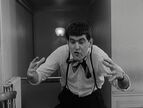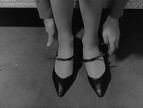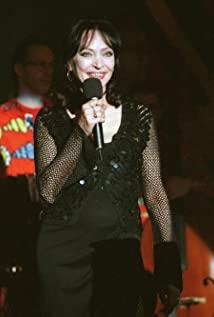8.2
For example, language, we actually look down on language itself. It's a tool, we just need to care about efficacy. Structural linguists say that language is an independent system that exists independently of existence, and that the subject becomes an appendage of the structure. She doubted: I was not what I thought when I said it. Have you read the Tao Te Ching? If thoughts can be spoken, the moment of speaking is no longer permanent. We should actually speak back to back, we should write letters, lose the tone, lose the tone, lose the expression, lose the gesture, and then look at what we mean by these words. Several times the narration had nothing to do with the picture, and later he simply did not open his mouth and presented the dialogue with subtitles. We have to pursue lies, which are far nobler than unconscious deception. Even if the words I just wrote must be what I think, if I think carefully about the most important things in life, I can't live even a day.
How does one die? The whole film is thinking about it, presenting a spectacle of how human beings exist. I've always wished I was someone else, and I said the same when I wasn't crying. Many movies are hypocritical, forcing us to stare at fabricated events and empty reality. Nana's death is different. It is not death in the dramatic sense. Her conceptual world exists independently, close to Plato and Descartes' side, and the twelve-act play dissolves it into infinite concreteness. Men say that women only have three sides, front, side, and back. The thing itself is the thing itself, and life is life. The end point of phenomenological reduction is not human rational cognition, but human reality, which is what Heidegger meant. What is "As You Want"? It's a movie about prostitution.
A child who loves chickens said that chickens have an inside and an outside: if you throw away the outside, it will be left with the inside; throw away the inside and you will find the soul. After detonating the bomb, "Red Mantle" Bordos wondered how he could move one foot before the other? So he was crushed to death in the collapsed cellar, his thinking hindered his survival. This subjectivity anxiety is revealed at the beginning, Nana is in love with a man, and the man does not regard her as a special person. She wanted to be an actor, but she didn't become an actor, but she chose to be a prostitute, so she abandoned herself as an order and rule. Isn't what we say what other people want to hear, isn't the movie we want to see conditioned by what we've seen before? There is no so-called self "consciousness", only a "relationship" established with others, and we are determined by the latter. The story of the chicken also leads only to one thing—to drop the structure and leave the subject. For movies, what Godard has always been doing is to oppose "structure" with "subjectivity" and "language" with "existence". He can't make high-quality movies in the public sense, just because he is thinking about what a movie is.
Foucault said that the “subject” and the abstract capitalized “human” that everyone advocates are just ideals, and the concepts come from the construction of discourse power. If it is a movie, it exists as a commodity with consumption rules, as a product with industrial rules, and as a popular culture, it needs to cater to the ideologically educated preferences of the public. Godard's films do not seek resonance, but instead create thinking by rejecting the audience. Happiness is not fun, and people have always valued it too much; by contrast, we always care most about what movies can bring us, not what movies are. Where is the logical meaning of people and the logical meaning of movies - when we talk about chickens, we are talking about the properties of chickens rather than the ubiquity of chickens. Maybe Flaherty is true, Eisenstein is false, and Godard is in between, or outside of both.
View more about Vivre Sa Vie reviews








